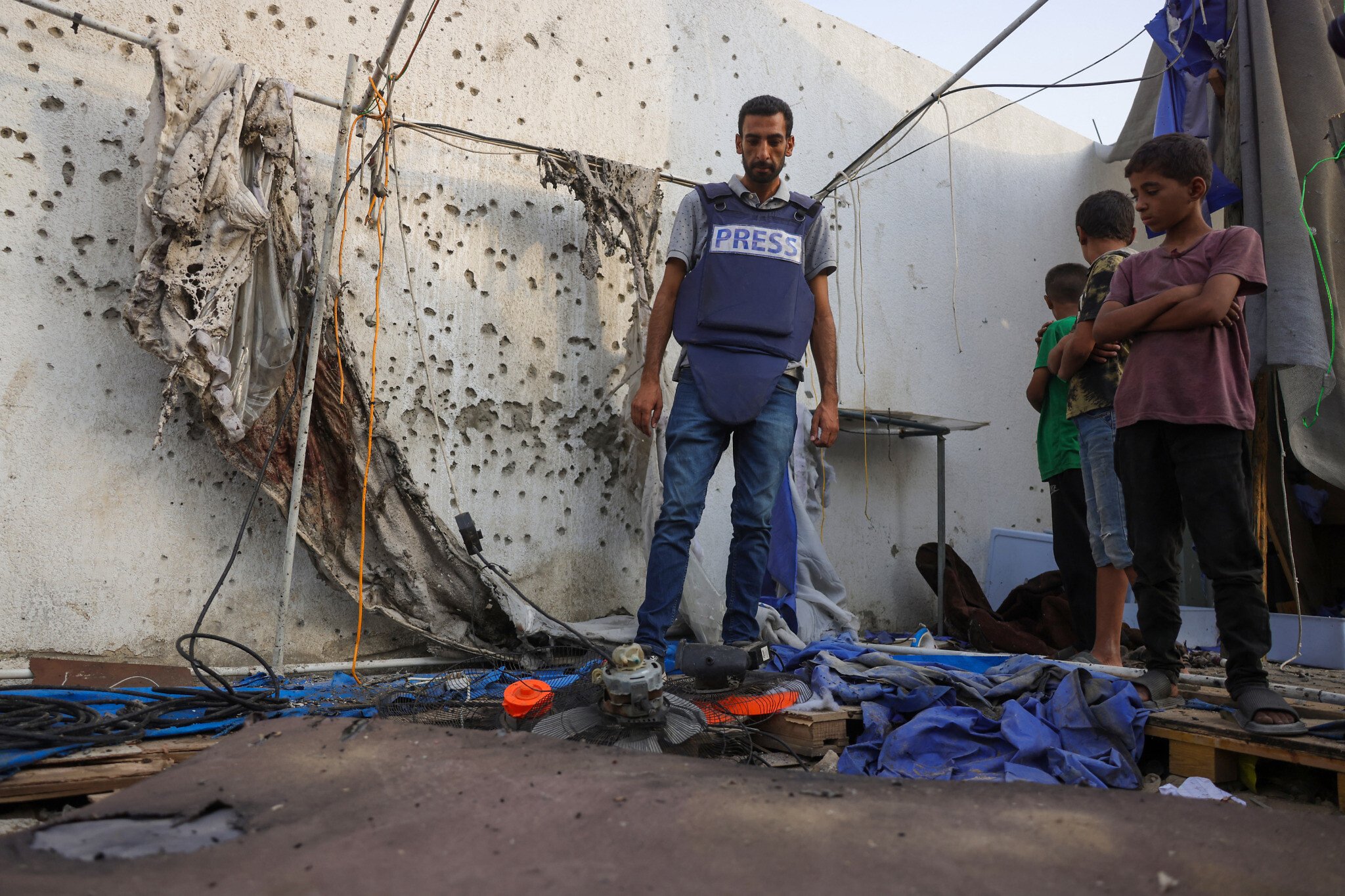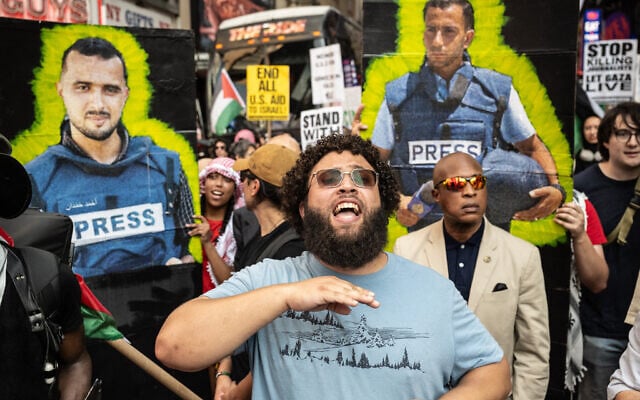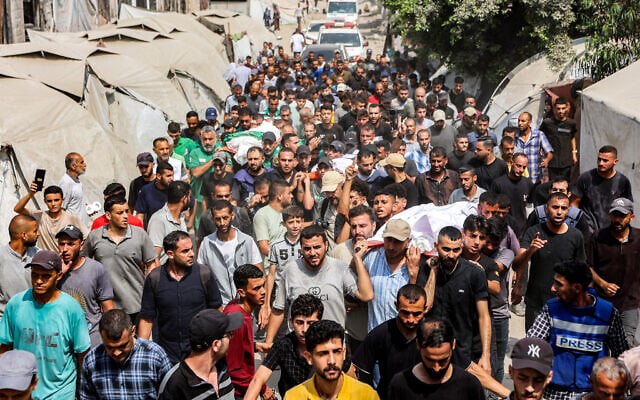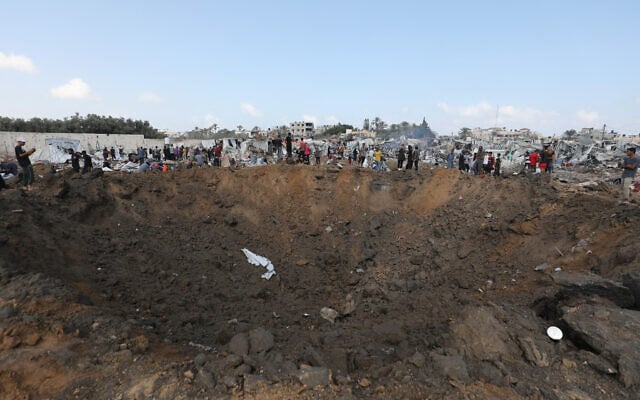


Twenty-eight countries, including Britain, France and Germany, called on Israel on Thursday to allow “immediate independent foreign media access” into the war-torn Gaza Strip.
“In light of the unfolding humanitarian catastrophe in Gaza, we, the undersigned members of the Media Freedom Coalition, urge Israel to allow immediate independent foreign media access and afford protection for journalists operating in Gaza,” much of the international coalition said in a statement.
“Journalists and media workers play an essential role in putting the spotlight on the devastating reality of war. Access to conflict zones is vital to carrying out this role effectively. We oppose all attempts to restrict press freedom and block entry to journalists during conflicts,” the member states added.
Since the Hamas terror group’s October 7, 2023 invasion of Israel started the ongoing war in the Gaza Strip, a small number of journalists have been able to enter the enclave only with the Israeli army and under strict military censorship rules.
The government has rebuffed requests to allow media to enter freely, saying the situation in Gaza is too dangerous to allow access without military escort.
Prime Minister Benjamin Netanyahu said earlier this month, when asked about the issue, that he’d ordered the military to bring in “a lot” more foreign journalists. Most reporters, however, are seeking unrestricted access to the Strip without an IDF escort.
The initial signatories to the letter were Australia, Austria, Belgium, Chile, Denmark, Estonia, Finland, France, Germany, Iceland, Ireland, Italy, Japan, Latvia, Lithuania, Luxembourg, New Zealand, Norway, Portugal, Sierra Leone, Slovakia, Slovenia, Sweden, Switzerland, Ukraine, the Netherlands and the United Kingdom. Canada also co-signed the statement after its publication.
The United States, which plays a leading role in the coalition, did not join the statement.
The coalition added: “We also strongly condemn all violence directed against journalists and media workers, especially the extremely high number of fatalities, arrests and detentions,” adding: “Deliberate targeting of journalists is unacceptable.
Israel has been accused of targeting Gazan journalists amid the war, but the military says it has no such policy, and that many of the people identified as journalists who have been killed during the war were actually terror operatives.
Earlier this month, an Israeli strike in Gaza City killed a prominent reporter for the Qatari broadcaster Al Jazeera, along with five of his colleagues. The Israel Defense Forces had maintained for some time, however — publishing as evidence documents it said were seized in Gaza — that the reporter, Anas al-Sharif, was the commander of a Hamas cell charged with firing rockets at Israeli civilians and IDF troops.
“Intelligence and documents from Gaza, including rosters, terrorist training lists and salary records, prove he was a Hamas operative integrated into Al Jazeera,” the military said of Sharif after his death.
In response to a query by The Times of Israel as to why the IDF chose to target Sharif when he was with five other journalists in a tent near Gaza City’s Shifa Hospital, a military source claimed that several of the other journalists were also members of terror groups.
The MFC statement, which made no reference to specific cases, did not acknowledge Israel’s allegation that some of those killed were combatants.
The 28 states said Thursday that they “strongly condemn all violence directed against journalists and media workers, especially the extremely high number of fatalities, arrests and detentions.”
According to UN Secretary-General Antonio Guterres, at least 242 journalists have been killed in Gaza since the war began.
The statement called on Israel to “make every effort to ensure that media workers in Gaza, Israel, the West Bank and East Jerusalem – local and foreign alike – can conduct their work freely and safely.”
Additionally, the countries said they “reiterate calls for an immediate ceasefire, the unconditional release of the remaining hostages, unhindered flow of humanitarian aid, and for a path towards a two-state solution, long-term peace and security.”




